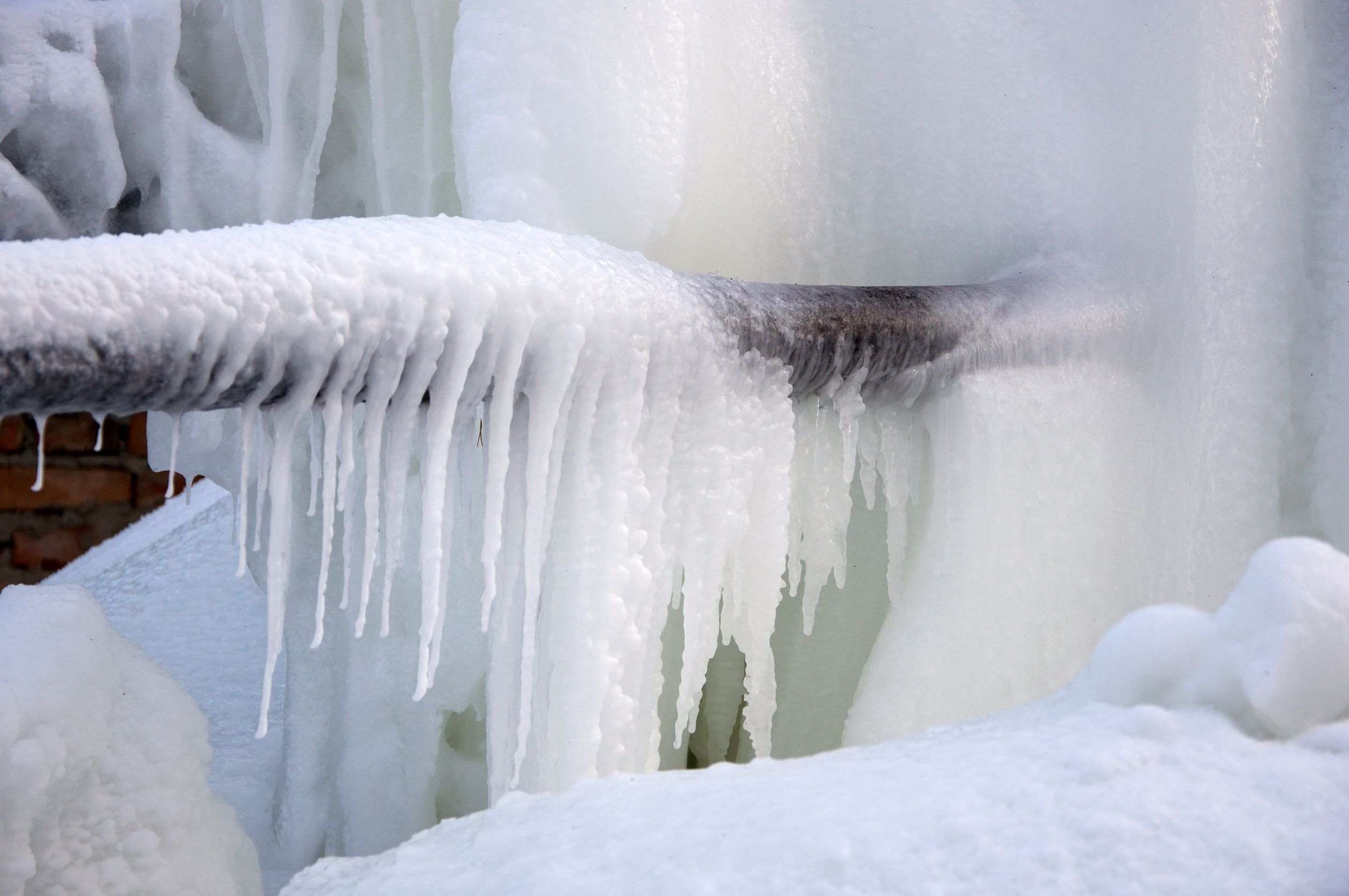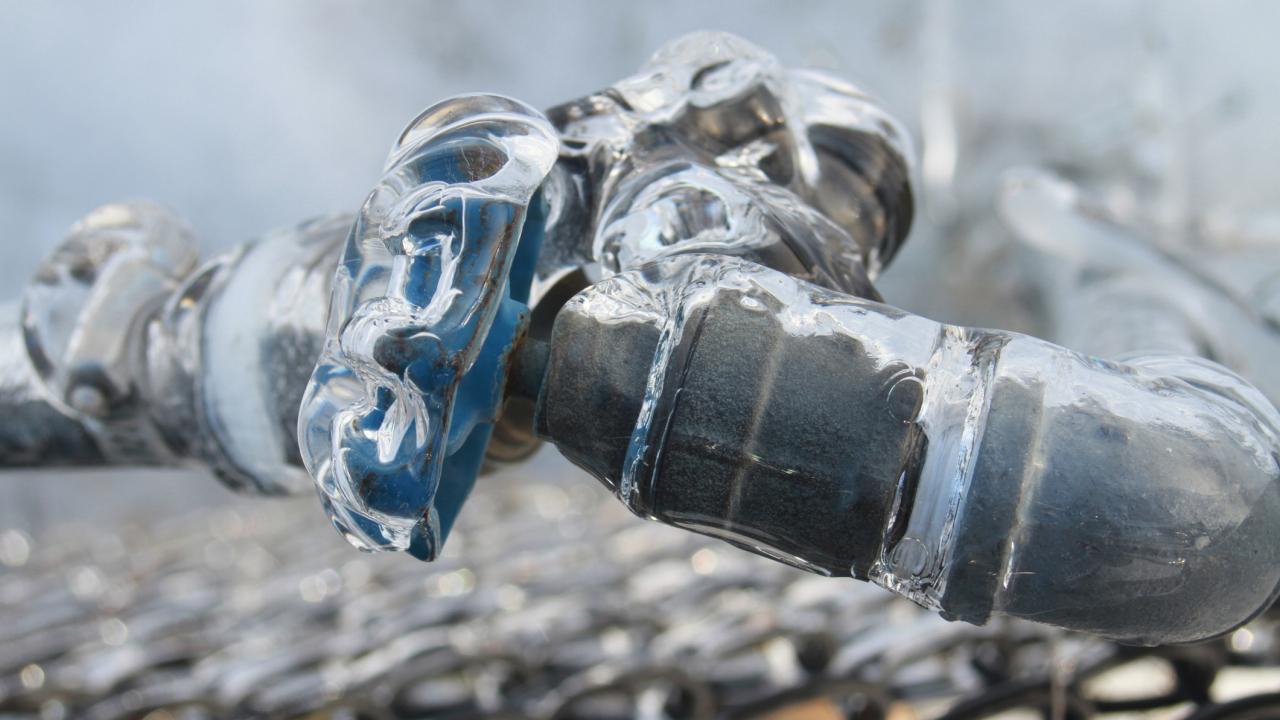Important Advice to Prevent Frozen Pipes in Cold Weather: Professional Insights
Important Advice to Prevent Frozen Pipes in Cold Weather: Professional Insights
Blog Article
They are making several great observations relating to Preventing and dealing with frozen pipes in general in this content following next.

Cold weather can wreak havoc on your pipes, especially by freezing pipes. Right here's exactly how to prevent it from happening and what to do if it does.
Introduction
As temperatures decrease, the threat of frozen pipelines increases, possibly leading to expensive repairs and water damage. Recognizing how to stop icy pipes is vital for homeowners in chilly environments.
Avoidance Tips
Shielding vulnerable pipes
Wrap pipes in insulation sleeves or utilize warmth tape to protect them from freezing temperatures. Focus on pipes in unheated or exterior areas of the home.
Heating techniques
Keep indoor rooms adequately heated, especially locations with pipes. Open cupboard doors to permit warm air to circulate around pipelines under sinks.
How to determine icy pipelines
Look for decreased water circulation from taps, uncommon smells or sounds from pipelines, and noticeable frost on exposed pipelines.
Long-Term Solutions
Architectural changes
Consider rerouting pipelines away from exterior wall surfaces or unheated areas. Add extra insulation to attic rooms, basements, and crawl spaces.
Updating insulation
Buy premium insulation for pipelines, attics, and wall surfaces. Appropriate insulation assists maintain consistent temperature levels and lowers the risk of frozen pipelines.
Protecting Outdoor Plumbing
Garden tubes and outdoor taps
Separate and drain yard tubes prior to winter months. Set up frost-proof faucets or cover outdoor faucets with protected caps.
Recognizing Icy Pipelines
What creates pipelines to ice up?
Pipes freeze when exposed to temperatures below 32 ° F (0 ° C) for prolonged periods. As water inside the pipelines freezes, it increases, taxing the pipeline walls and potentially triggering them to rupture.
Dangers and damages
Icy pipes can result in water system disturbances, residential or commercial property damage, and pricey fixings. Burst pipes can flooding homes and trigger extensive architectural damage.
Indications of Frozen Pipes
Determining icy pipelines early can stop them from breaking.
What to Do If Your Pipelines Freeze
Immediate activities to take
If you suspect icy pipelines, maintain faucets open up to relieve stress as the ice thaws. Use a hairdryer or towels taken in hot water to thaw pipelines slowly.
Conclusion
Protecting against icy pipes requires proactive actions and fast reactions. By understanding the causes, indications, and preventive measures, house owners can shield their plumbing throughout cold weather.
Helpful Tips to Prevent Frozen Pipes this Winter
UNDERSTANDING THE BASICS: WHY PIPES FREEZE AND WHY IT’S A PROBLEM
Water freezing inside pipes is common during the winter months, but understanding why pipes freeze, and the potential problems it can cause is crucial in preventing such incidents. This section will delve into the basics of why pipes freeze and the associated problems that may arise.
THE SCIENCE BEHIND FROZEN PIPES
When water reaches freezing temperatures, it undergoes a physical transformation and solidifies into ice. This expansion of water as it freezes is the primary reason pipes can burst. As the water inside the pipe freezes, it expands, creating immense pressure on the walls. If the pressure becomes too great, the pipe can crack or rupture, leading to leaks and water damage.
FACTORS THAT CONTRIBUTE TO PIPE FREEZING
Low Temperatures: Extremely cold weather, especially below freezing, increases the risk of pipes freezing. Uninsulated or Poorly Insulated Pipes: Pipes located in unheated areas, such as basements, crawl spaces, or attics, are more prone to freezing. Insufficient insulation or lack of insulation altogether exacerbates the problem. Exterior Wall Exposure: Pipes running along exterior walls are susceptible to freezing as they encounter colder temperatures outside. Lack of Heating or Temperature Regulation: Inadequate heating or inconsistent temperature control in your home can contribute to frozen pipes. PROBLEMS CAUSED BY FROZEN PIPES
- Pipe Bursting: As mentioned earlier, the expansion of water as it freezes can cause pipes to burst, resulting in significant water damage.
- Water Damage: When pipes burst, it can lead to flooding and water damage to your property, including walls, ceilings, flooring, and personal belongings.
- Structural Damage: Prolonged exposure to water from burst pipes can compromise the structural integrity of your home, leading to costly repairs.
- Mold and Mildew Growth: Excess moisture from water damage can create a favorable environment for mold and mildew growth, posing health risks to occupants.
- Disrupted Water Supply: Frozen pipes can also result in a complete or partial loss of water supply until the issue is resolved.
WHY CERTAIN PIPES ARE MORE PRONE TO FREEZING
- Location: Pipes located in unheated or poorly insulated areas, such as basements, crawl spaces, attics, or exterior walls, are at higher risk of freezing.
- Exterior Pipes: Outdoor pipes, such as those used for irrigation or exposed plumbing, are particularly vulnerable to freezing as they are directly exposed to the elements.
- Supply Lines: Pipes that carry water from the main water supply into your home, including the main water line, are critical to protect as freezing in these lines can affect your entire plumbing system.
- Underground Pipes: Pipes buried underground, such as those connected to sprinkler systems or outdoor faucets, can be susceptible to freezing if not properly insulated.
https://busybusy.com/blog/helpful-tips-to-prevent-frozen-pipes-this-winter/

I hope you liked our article about Helpful Tips to Prevent Frozen Pipes this Winter. Many thanks for spending some time to read our post. Sharing is nice. Helping people is fun. Thank-you for your time spent reading it.
Click Here Report this page